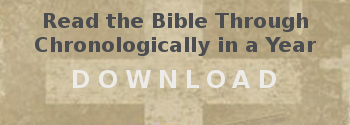Today’s Message…
Background and theology of Nehemiah’s Sabbath Policy
Exodus 31:12-17 (esp. vs13, 17), indicates that the Sabbath is a “sign.” It marked out Israel as unique, for other peoples did not have the Sabbath. Strangely, perhaps in reaction to later legalism, there is a negative view of the Sabbath in the contemporary church. Even the Protestant church, though holding a kind of tolerance for the Sabbath, has more interest in bolstering the case for why we don’t need to adhere to the fourth commandment.
But note Exodus 20:8-11. The Sabbath is a gift because they stop work (Ex. 34:21). Only a free people does that. In Egypt they didn’t dare stop work! But when God freed them from bondage, He enabled them to cease from work – every week! The Sabbath is a sign of grace and freedom, not of bondage. Slaves work all the time, but free people have the liberty of rest: including servants, livestock and sojourners! Here is the social benefit of the command.
So, when you insist on cluttering the Sabbath with work:
-
It is a failure of faith, because by working and not resting, you’re saying that you can’t trust God to provide but must keep working because all your life rests on your efforts.
-
It is a failure of compassion, because then your dependents (family, servants, livestock) will not enjoy rest. See Deuteronomy 5:14 for this social argument.
-
It is a choice of bondage, for you are deifying work, subjecting yourself to a continuous treadmill which God meant to interrupt weekly. You are saying,
“No, I want to be a slave, I want to return to Egypt; I want to run, frustrated and exhausted, to Bunning’s on the Lord’s Day. I want to pay bills then, I want to complete assignments then, I want to work on my income tax. I want to be a slave! I do not want rest or quietness or solitude – I might meet God.”
God’s pattern is: work six days and stop for one day. It is a way of saying that work is not your god.
These principles remain for the people of God, even though our culture and government is non-covenantal and pays no attention to them, we do. R. D Davies.



Leave a Reply